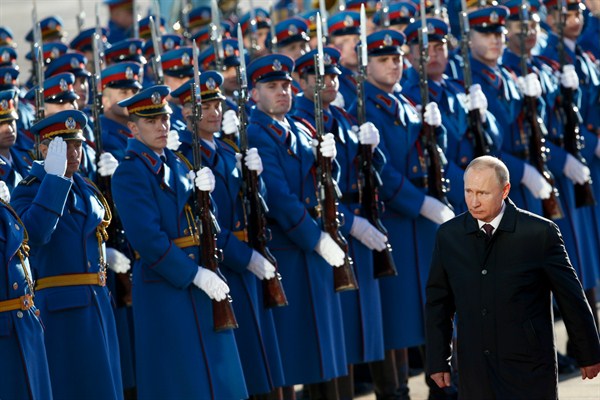Greece’s parliament held a historic vote last Friday that not only ended a three-decade-old dispute with its neighbor, but handed Russia a bruising defeat. The decision, formally recognizing the newly renamed nation of North Macedonia, sealed a deal reached between Greek and Macedonian leaders last year and removed the main obstacle that has prevented the former Yugoslav republic from joining the European Union and NATO.
The resolution of the naming quarrel is a setback to Russia, which had deployed its now-familiar geopolitical tools to try and block it. Yet the dispute is just one of many sources of tension in the perennially fragile Balkans, where Russia’s efforts to meddle and strengthen its regional position are still moving forward on many fronts.
From the moment Yugoslavia disintegrated in the 1990s, with its constituent republics declaring themselves independent states, Macedonia faced a unique problem. Bordering Greece, Macedonia shared a name with Greece’s northernmost province, and Athens worried that its new neighbor would extend its irredentist claims over that province. For years, based on those fears, the Greek government refused to recognize its neighbor and blocked its accession to the EU and NATO. But last year, an agreement was reached to break the impasse and put behind the cumbersome, provisional name of the Former Yugoslav Republic of Macedonia—under which it was admitted to the United Nations, because of Greece’s objections—and create North Macedonia.

